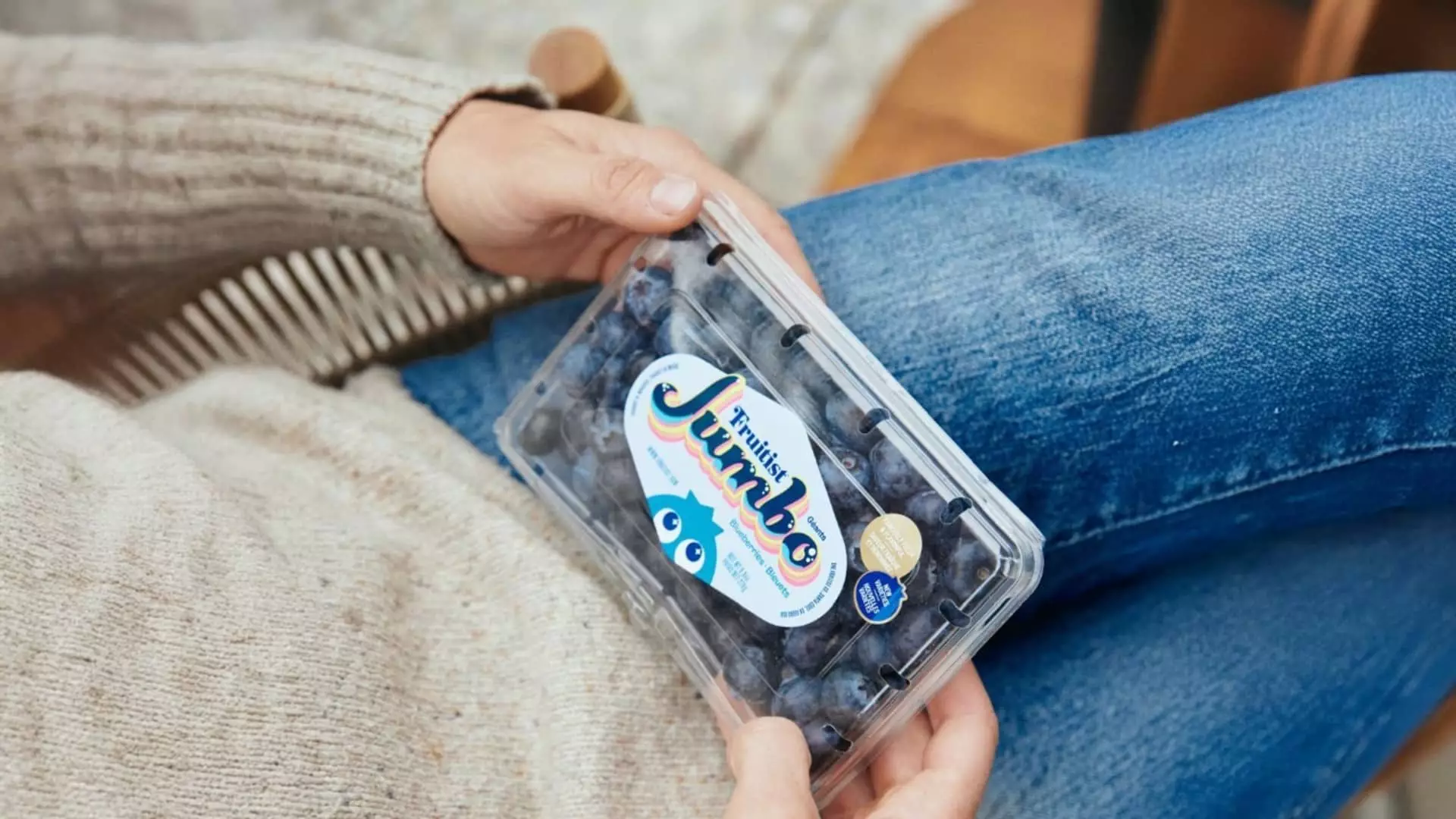In an era where consumer preferences are rapidly evolving, the berry industry has seen a meteoric rise in popularity, with Fruitist leading the charge. The company, formerly known as Agrovision, has recently rebranded and surpassed a staggering $400 million in annual sales, predominantly fueled by its long-lasting jumbo blueberries. This transformation—from a simple agriculture firm to a premier player in the healthy snack market—embodies not only innovation in produce but also a strategic reshaping of how we view snacking. From the looks of it, this is not merely a change of name; it’s the dawn of a new era in berry consumption.
Fruitist’s rise is not just a fortunate blip in the market; rather, it’s a testament to a calculated approach to addressing inefficiencies within the agricultural supply chain. CEO Steve Magami’s term, “berry roulette,” perfectly encapsulates the gamble consumers face when selecting fresh produce. Legacy players often rely on a convoluted distribution network that compromises quality. By contrast, Fruitist’s model focuses on a vertically integrated supply chain to maintain high standards. With its colorful array of berries—primarily blueberries, but extending to raspberries and blackberries—Fruitist emphasizes freshness and quality, offering a delightful alternative to traditional snacks.
Innovation Meets Sustainability
What separates Fruitist from its competitors is an unwavering commitment to sustainability and innovation. The company has poured over $600 million into developing its infrastructure, including farms located in microclimates that optimize berry growth. Their integration of machine learning to determine the optimal harvest time highlights a forward-thinking mentality that many agricultural firms are yet to adopt. By utilizing technology to track and enhance quality, they offer consumers not just a product, but an assurance of superior freshness.
Moreover, their unique farming methods—operating across diverse geographical regions like Oregon, Morocco, and Mexico—allow them to circumvent the seasonal constraints that have historically impacted berry production. Such adaptability can prove invaluable in an industry often plagued by supply issues due to climate change and varying harvest yields. By seeking to grow berries year-round and expanding their global footprint, Fruitist positions itself at the forefront of a changing consumer landscape.
The Snackification Trend
The phenomenon of “snackification”—the tendency among consumers to opt for convenient, healthier snack options—has taken the food industry by storm. With the push for healthier lifestyles gaining traction, driven by the likes of Health Secretary Robert F. Kennedy Jr.’s “Make America Healthy Again” campaign, Fruitist is perfectly positioned to capitalize on this trend. Their branding strategy as a health-oriented snack choice aligns seamlessly with the desires of health-conscious consumers who are increasingly shunning traditional unhealthy snacks like chips.
Sales figures tell the story of this shift. Notably, the demand for Fruitist’s jumbo blueberries has tripled within the past year, which reflects a growing acceptance of fruit as a legitimate snack option. The atmosphere around healthy eating has shifted dramatically, and it’s heartening to see a company that not only recognizes this trend but actively embodies its principles.
Market Dynamics and Future Aspirations
With ambitions of going public on the horizon, Fruitist stands on the cusp of further transformation. Such a move could bring with it a unique set of challenges, especially in light of the current climate of global trade tensions and market volatility. Investors are understandably cautious, as evidenced by the mixed results from recent public offerings by various companies. However, Fruitist’s track record and its niche market provide a glimmer of hope.
While the company’s structure allows it to have minimal reliance on imports—thereby expecting reduced impacts from tariffs—it must remain vigilant. The trade landscape is constantly evolving, and the looming tariff rates in countries like India present uncertainties that must be navigated wisely. However, there is an unmistakable optimism emanating from Magami, who remains confident that Fruitist’s model will weather the storm.
The recent multiyear deal with D.C. United marks yet another strategic movement in the company’s efforts to solidify its brand presence beyond grocery shelves. With expanding marketing initiatives and plans for product expansion into cherries, Fruitist is charting a course for sustained growth.
In a landscape where the consumer is ever more discerning, one cannot help but marvel at the resilience and entrepreneurship that Fruitist embodies. The berry revolution they are spearheading may very well alter the enterprising narrative of the agricultural landscape, one jumbo blueberry at a time.

Leave a Reply